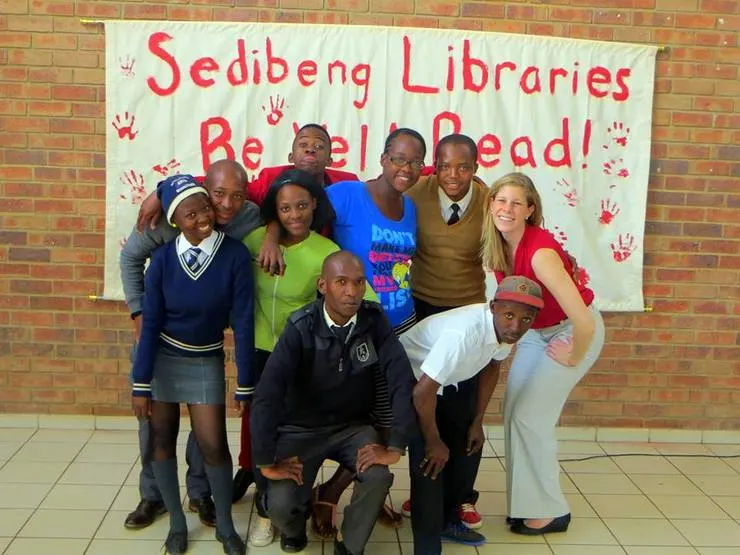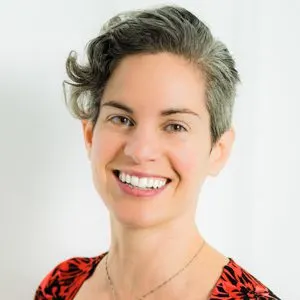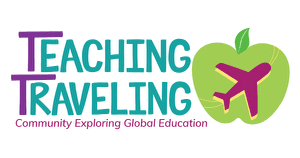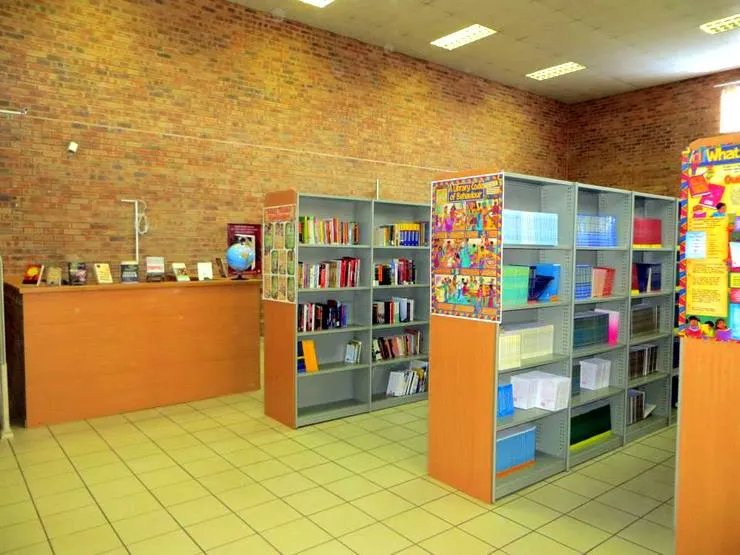Teaching Traveling: Welcome to Mica Fidler, a New York teacher who has traveled and taught around the world! Mica, tell us a bit about your background.
Mica: I’m an avid language learner and travel addict, and I’m blessed to have been able to feed that addiction so liberally in my life. I’m 24 years old and have been to 28 countries, including 8 months living in the UK as a student, 2 summers teaching English in China and, most recently, a year working on literacy development in South Africa.
I now live in New York and am teaching middle school science as a long-term substitute at Metropolitan Expeditionary Learning School in Queens.
TT: Awesome! Tell us more about your travels.
M: I spent 2013 in South Africa on a Fulbright English Teaching Assistantship. This was a grant that I received through the U.S. Department of State’s Bureau of Educational and Cultural Affairs during my senior year of college.
The terms of the grant were extremely broad; I was simply tasked with working to improve English literacy in the region. I was placed at a vocational college (similar to the US’s community colleges, but more strictly career prep based), and decided to build a library at each of the college’s 4 campuses.
In total, through donations and discounted purchases from publishers, the libraries ended up totaling over 7,000 books! I also taught enrichment lessons which covered topics such as “Introduction to Blogging and Twitter,” “Rihanna and Learning the Difference Between Love and Abuse,” and “Man in the Mirror: How to be a Change-maker in Your Community.” I also ran an after school club that combined poetry, debate, and personal empowerment.
TT: Love it! How did you find this travel opportunity?
M: While I heard about this opportunity through my college, plenty of Fulbrights are given to professionals who have been out of school for some time.
The following sites provide information about opportunities for trained K-12 teachers, as well as college students to teach abroad through the Fulbright Program: Fulbright Distinguished Awards in Teaching, and Fulbright English Teaching Assistant Program.
TT: How much did the Fulbright money cover for your travels?
M: The grant was sufficient to live comfortably in South Africa for 10 months. I even got to travel around the country (to Cape Town, the Garden Route, and Johannesburg) and the region (Swaziland and Zambia).
In order to support my literacy projects, I fundraised via gofundme.com. Together with another Fulbright, Ayushi Gummadi, I raised $8,500 in individual donations, as well as $2,500 from Hewlett-Packard South Africa. This money went a long way towards buying books for the libraries!
TT: So wonderful! Tell us one moment from your travels that was particularly powerful.
M: For the “Film Study” unit of the curriculum, students at the college were supposed to watch the movie “Freedom Writers” which details how an eager teacher (Hilary Swank) helps students from a variety of ethnic backgrounds in post-Rodney King Los Angeles develop tolerance and respect for their peers.
The film carries a heavy parallel to the Holocaust and, when I was questioning my students after the screening, it was clear that they were completely unfamiliar with that topic. So, I invited the Johannesburg Holocaust and Genocide Centre to come visit the college. They made a presentation on the Holocaust, shared video testimony of South African Holocaust survivors, and also brought a Rwandan Genocide survivor to share his experiences.
The Centre led a discussion about moral decision-making and the challenges of being a perpetrator, bystander, or activist against injustice. At the presentations, I was asked questions such as “why did Hitler hate the Jews?” and (when I revealed that I am Jewish) “how old were you when this happened to you?”
These questions demonstrated the limited knowledge our students had about these topics and how crucial it is to provide enrichment activities to supplement their vocational education.
Genocide, xenophobia, and violent intolerance have plagued the world before and since the Holocaust. I can only hope that this presentation helped my students think a bit more deeply about South Africa’s history and its current treatment of the immigrants and different cultures within its borders.
Another particularly moving moment came when I collected student performances to feature on a student talent blog for the college. Paballo Mokoena struggles with cerebral palsy, yet was one of the first to volunteer to perform a poem she had written. You can see Paballo bravely reciting her poem here.
TT: So inspiring. How have your travels impacted you as a teacher, and in your current career?
M: As is the case in many American public school districts, inefficiency, inequality, and apathy were pernicious challenges to my work in South Africa. The students skipped roughly 40% of classes with no penalty.
The teachers went on strike for 4+ weeks right when the students needed to review for exams. Our daily staff meeting AND first period both started at 7:45am every day.
I continually felt like an avatar in a video game: as soon as I broke down one logistical barrier to learning, a new one would pop up in my way. However, there was one instance that reminded me that no matter how many how many problems plague the students’ lives and the community outside the classroom, the best teachers always keep their goal in mind: help students learn and grow.
One Friday, I emerged from staff meeting to find my first period class (like nearly all others in the school) completely empty. I spent the first period thinking over and over how I could have better incentivized the students to come to school.
When the bell rang for second period I was fully expecting to be stood up once more. However, Tumelo entered the classroom right on time. When I asked Tumelo why he came to school on Friday when the rest of his friends ditched, he responded “Ma’am you told me I was presenting a motivational quote today and I didn’t want to disappoint you.” Tumelo’s dedication reinforced one of my most basic beliefs about education: positive expectations breed positive outcomes.
It is easy as a teacher to become disheartened when student behavior disappoints you. However, it is our responsibility to continually set high expectations and be there every step of the way to help students achieve success.
TT: Beautiful. How have your travels impacted you as a person?
M: Because of the racial divisions still present in South Africa 20 years after the end of Apartheid, it was very hard to convince my black colleagues that I actually wanted to be their friend.
I would ask them to teach me Sesotho (one of the local black languages) and try to get myself invited to their homes and churches, but for the first few months it was hard to extend our camaraderie beyond the work day. Several months into the school year, a colleague finally invited me where no white person had gone before… a shisa nyama (or bar and barbecue) in Sebokeng township.
When the other Fulbright (an Indian-American) and I walked into the bar, every single eye zeroed in on us. People pointed and stared and came over to talk to us throughout the night. Then, on Monday our appearance in the township was the talk of staff meeting. Despite all the unwanted attention, breaking down that first entrenched racial barrier ushered in a host of other invitations. I attended a colleague’s graduation, visited several churches, and joined a couple families for Sunday brunch.
I was by no means an inconspicuous guest, and was always invited to sit in the front row or introduce myself to the crowd, but it felt so good to be welcomed into the community that comprises 80% of the population in South Africa. This experience taught me how directly fear and division are related to ignorance.
Even if it takes a great deal of effort to establish sufficient trust, we must always go out of our way to understand and open ourselves to those from different backgrounds. If we do not take these types of risks, we reduce our environment to a skewed microcosm of the actual world.

TT: Such a powerful and important insight. What advice do you have for teachers who are dreaming of travel, or travelers dreaming of teaching?
M: When you travel, your center of consciousness shifts completely to align with your new location. In South Africa, my neighbors on the border were not Mexico and Canada, but Mozambique and Zimbabwe. When there was unrest in the transportation and petroleum unions, my commute to school was affected.
I had to welcome a whole host of new problems and considerations into my definition of normalcy. As teachers, we continually try to relate to our students and see the problems they are facing with fresh eyes. Travel helps extend our understanding of the range of human emotions and experiences and teaches us how flexible and resilient we can really be.
As a teacher and an English speaker, your skills and training are in demand throughout the globe! Go out and share your talent and discover the unpredictable ways that travel can change your perspective of your identity, environment, and vocation.
As Nelson Mandela said,“there is nothing like returning to a place that remains unchanged to find the ways in which you yourself have altered.”
TT: Thank you so much, Mica. Readers, what questions or comments do you have for this inspiring teacher-traveler?

The author, Lillie Marshall, is a 6-foot-tall National Board Certified Teacher of English from Boston who has been a public school educator since 2003. She launched TeachingTraveling.com in 2010 to share expert global education resources, and over 1.6 million readers have visited over the past decade. Lillie also runs AroundTheWorld L.com Travel and Life Blog, and DrawingsOf.com for educational art. Do stay in touch via subscribing to her monthly newsletter, and following @WorldLillie on social media!





valerie
Wednesday 11th of February 2015
I attest that they were indeed great teachers indeed .
Iam Valerie Sefatsa i was one the students at Sedibeng College the Vereeniging Campus . I can definitely resonate with the fact that they did not only want to be mere teachers but friends with us too but having a racial barrier or may i call it stereotype even after 20 post apartheid it was hard to believe why do these "white people" want to co-exist/help us but over time this was a insignificant factor they really did want to know how we are as young people our interests,culture , history etc.
Mica and Yeshi did a great deal to have a lasting impact on our lives two years after they have departed , because the library they assisted to upgrade is still being used and is a helpful resource to our academic journey.
I have moved on from college and Iam currently a first year student at the North-west University studying BA Public Management majoring in Law . Your passion and effort was purely evident , Mica and Yeshi I love you guys God bless
Alexa
Sunday 19th of October 2014
When were you notified from fulbright that you were accepted?
Mica
Monday 20th of October 2014
I applied in September, found out in January that I was shortlisted, and found out in the end of April that I'd gotten the grant. Then, I didn't leave until the following January.
Frank
Monday 19th of May 2014
What an intriguing experience ... succeeding in that environment only shows how dedicated and skilled you are at teaching. You did better than me when I taught English ... my hat goes off to you!
Shelley
Wednesday 9th of April 2014
I was lucky enough to read Mica's posts throughout her time IN SA and especially lucky to travel to her town, meet some of her SA friends and colleagues and to learn through her eyes. It was a life changing experience for me - so I join my voice with hers and with TT and urge teachers to travel and work and change both themselves and the opportunities for others in far away places.
Mica
Wednesday 9th of April 2014
Feel free to comment with any questions!
josh
Wednesday 9th of April 2014
Inspiring piece. What's next for your students? Did they receive degrees? Has language literacy and a community college education changed their lives?